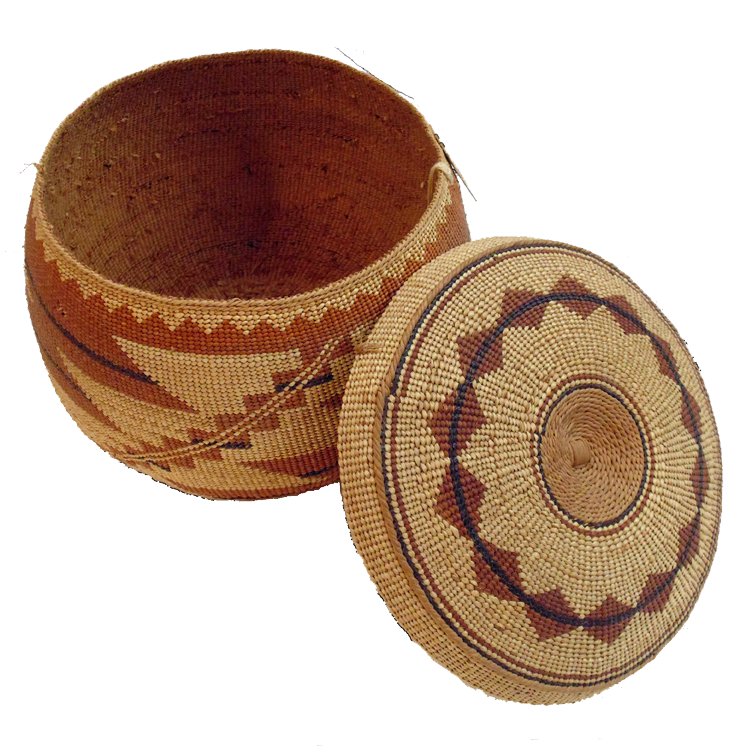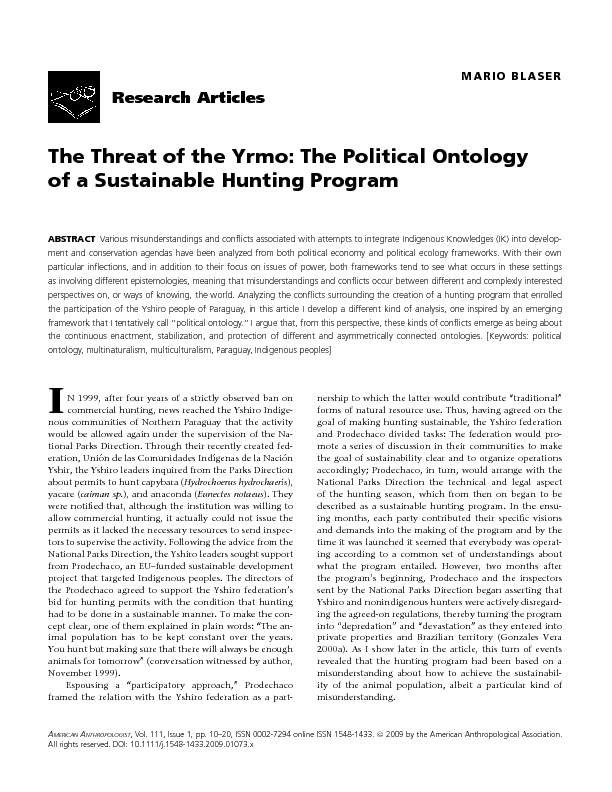The Threat of the Yrmo: The Political Ontology of a Sustainable Hunting Program
Various misunderstandings and conflicts associated with attempts to integrate Indigenous Knowledges (IK) into development and conservation agendas have been analyzed from both political economy and political ecology frameworks. With their own particular inflections, and in addition to their focus on issues of power, both frameworks tend to see what occurs in these settings as involving different epistemologies, meaning that misunderstandings and conflicts occur between different and complexly interested perspectives on, or ways of knowing, the world. Analyzing the conflicts surrounding the creation of a hunting program that enrolled the participation of the Yshiro people of Paraguay, in this article I develop a different kind of analysis, one inspired by an emerging framework that I tentatively call “political ontology.” I argue that, from this perspective, these kinds of conflicts emerge as being about the continuous enactment, stabilization, and protection of different and asymmetrically connected ontologies.
Provenance: Contributed to Sipnuuk Food Security Collection by Dan Sarna, PhD candidate at the Department of Environmental Science, Policy, & Management at UC Berkeley, in association with his dissertation research as well as his collaboration on Objective 12 of the AFRI Food Security grant.
Rights: American Anthropological Association


